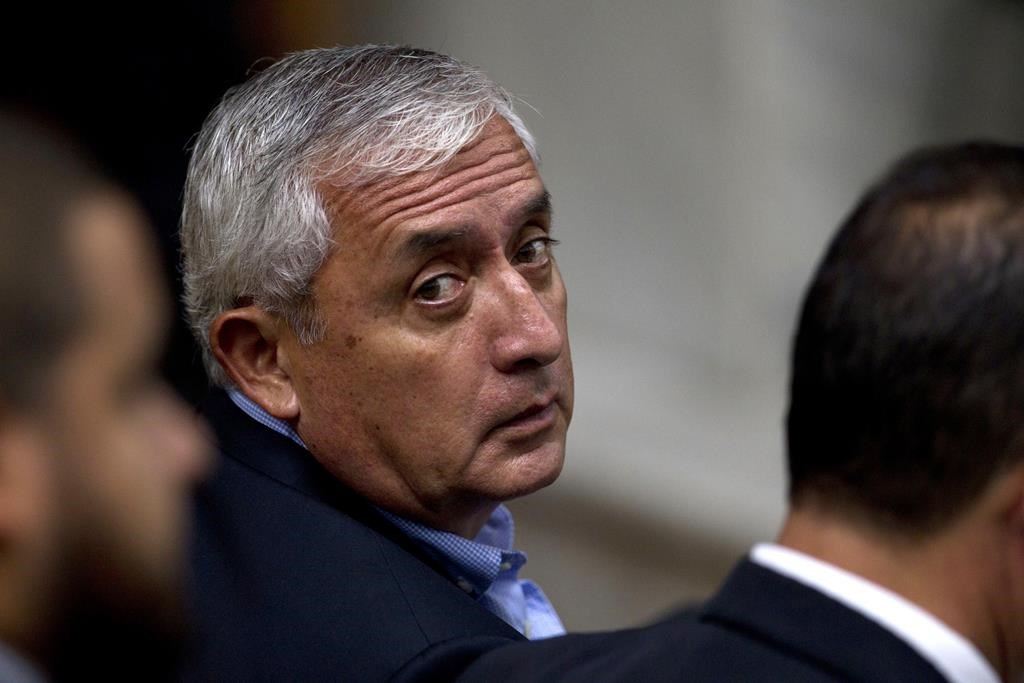Former Guatemalan president released on bond; leaves prison for first time since 2015

GUATEMALA CITY (AP) — Former Guatemalan President Otto Pérez Molina, convicted of fraud and conspiracy, was released from prison more than eight years after his resignation and arrest to wait out his appeal or confirmation of his sentence, according to his lawyer.
Pérez Molina was released Wednesday night after posting bond of more than $10.3 million quetzales ($1.3 million), but must not leave Guatemala and will have to check in with prosecutors every 30 days, his lawyer César Calderón said Thursday.
Pérez Molina was convicted and sentenced to 16 years in prison in December 2022 for a bribery scheme known locally as “La Linea” or “The Line.” But under Guatemala’s multi-step sentencing process, he appealed and the sentence has not yet been confirmed, making him eligible to post bond.
Advertisement
“We filed this alternative measure that had already been granted beforehand,” Calderón said.
Pérez Molina was also sentenced to eight years in prison in September after pleading guilty to charges of fraud, money laundering and bribery in a separate case during his administration. But the judge ruled that that sentence was commutable by making a payment, which Pérez Molina did in November.
Pérez Molina resigned in 2015 after massive protests fueled by accusations of corruption. His Vice President Roxana Baldetti was also convicted on corruption charges.
Pérez Molina and Baldetti were in custody on charges of permitting and benefiting from the customs graft scheme known as “La Linea.” The scheme involved a conspiracy to defraud the state by letting businesses evade import duties in exchange for bribes.
Around 30 others including customs officials and business people were implicated in the case, which involved about $1 million in bribes and $2 million in lost income for the government.
Advertisement
Pérez Molina’s prosecution was a high point in Guatemala’s effort to combat systemic corruption, aided by the United Nations-backed anti-corruption mission, known by its Spanish initials CICIG.
But the CICIG was later tossed out by then President Jimmy Morales and much of its work in conjunction with Guatemalan anti-corruption prosecutors has been subsequently undone in recent years.
President-elect Bernardo Arévalo, scheduled to assume office Jan. 14, has promised to bring back many of the anti-corruption prosecutors and judges who have been forced to flee the country.
____
Follow AP’s coverage of Latin America and the Caribbean at https://apnews.com/hub/latin-america
Advertisement
Sara Melini, The Associated Press